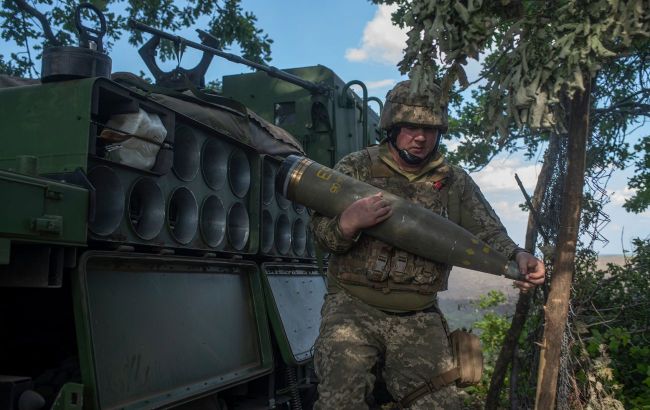Ukraine becomes prospective market for arms manufacturers from Balkans - The Economist
 Ukraine becomes prospective market for arms manufacturers from Balkans (photo: Getty Images)
Ukraine becomes prospective market for arms manufacturers from Balkans (photo: Getty Images)
While the war in Ukraine continues, Western Balkan arms manufacturers are experiencing a boost. Weapons production has increased several times, according to The Economist.
Since 2020, Serbian arms exports have quadrupled, according to The Economist, with about 800 million euros worth of ammunition delivered since Russia's invasion of Ukraine. Bosnia's exports almost doubled in the first four months of 2024 compared to the same period last year. Its ammunition factories operate around the clock.
These countries are able to produce so many weapons because they used to have a large army supported by an extensive military-industrial complex. The remnants of the defense industry are now concentrated in Bosnia and Serbia, which account for more than 90% of the Western Balkans' military exports.
According to the newspaper, of particular interest to Ukraine and its supporters is the industry's ability to produce ammunition and equipment of both Soviet and NATO standards. In addition, a Bosnian shell can cost a quarter less than a Western one.
Despite the fact that both Bosnia and Serbia have laws that prohibit them from selling weapons to war zones, these countries have found workarounds through third parties. For example, the main buyer of Bosnian bullets is the United States, which they redirect to Ukraine. But Serbia, despite its refusal to impose sanctions on Russia, is sending thousands of artillery shells through the Czech Republic, Turkey, and front companies. The Balkan NATO members - Croatia, Albania, Montenegro, and Macedonia - have handed over a significant portion of their stockpiles of old Soviet weapons. However, Croatia is likely to repair worn-out Kuwaiti M-84 tanks (the Yugoslav version of the Soviet T-72), which will be sent to Ukraine.
The Economist believes that for some Balkan governments, such arms production is an opportunity to gain political credibility in America and the European Union. This is especially true for those seeking to join the EU, such as Bosnia and Albania. Bosnian munitions factories, which were once on the verge of closure, are now fully staffed.
As for Serbia, for their president, Aleksandar Vučić, selling arms to Ukraine is part of a delicate balancing act between the West and Russia and good business.
Situation in the Western Balkans
According to EU High Representative Josep Borrell, the Western Balkan countries that are candidates for EU membership should take advantage of the unique moment in the enlargement process created by Ukraine's significant progress.
Subsequently, European Commission President Ursula von der Leyen called on the Western Balkan countries to stand up to authoritarian states such as Russia.
Zelenskyy also stated that Ukraine has specific agreements with the Western Balkan countries after the Ukraine-Southeast Europe summit. In particular, it is about strengthening artillery.

